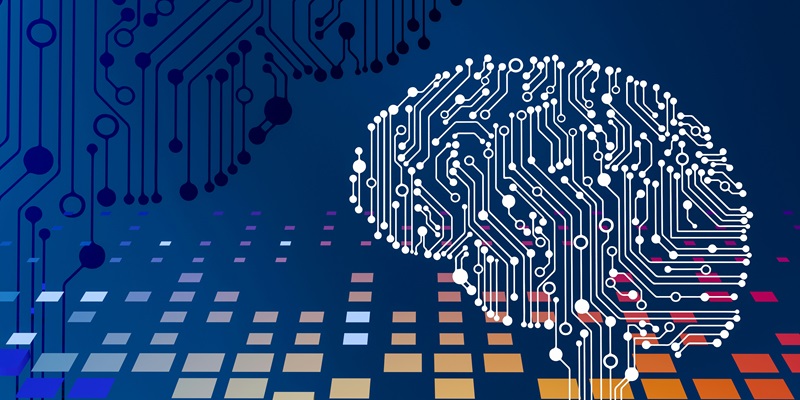In a world where artificial intelligence is rapidly transforming the digital landscape, the importance of AI literacy cannot be overemphasized. AI literacy isn’t just about understanding the nuts and bolts that hold AI technologies together; it’s also about grasping their applications and the weighty societal impacts they carry. As AI systems become increasingly embedded in our personal and professional lives, the need for a populace that can navigate these changes responsibly grows more urgent. Ethical considerations must be integral to this education, ensuring that AI systems are leveraged in ways that benefit society as a whole without compromising core human values.
The Multidimensional Impact of AI
From the high-precision algorithms that feed data into machine learning models to the robotics that are revolutionizing supply chains, AI’s practical applications are vast and varied. Consider computer vision technologies that are becoming indispensable in security surveillance and medical diagnostics, or the deployment of robots in manufacturing that streamline production while preserving quality. Acknowledging AI’s myriad potentials is crucial, but equally imperative is recognizing its limitations and risks, including privacy concerns, data security vulnerabilities, and the exacerbation of the digital divide. By understanding these dimensions, organizations can steer AI’s influence toward positive societal impacts while mitigating its risks.
Cultivating an AI-Informed Culture
Organizations aiming to enhance AI literacy must integrate it with their strategic goals through effective change management practices. By creating a culture that prioritizes continuous learning and adaptation, they position themselves better to harness AI’s transformative potential. This involves embedding AI literacy within the organization’s ethos, making it part of the professional development fabric. The long-term advantage of this culture shift is an organization that is agile, informed, and capable of strategic thinking in AI implementation.
Leadership Engagement in AI Literacy
Leadership engagement is pivotal in inculcating an AI literate culture within any organization. Leaders have the unique ability to set a tone that reverberates across all levels, encouraging an atmosphere where AI is neither an enigma nor an existential threat but a tool for innovation and progress. By participating in AI literacy initiatives, leaders can instill confidence and demystify the complexities of AI, fostering an environment where every employee feels empowered to adapt and contribute to AI-centric solutions.
Practical Steps for Enhancing AI Literacy
AI literacy training programs are instrumental in equipping employees with the skills necessary to thrive in an AI-driven world. To be effective, these programs must be tailored to suit various organizational roles, providing relevant and practical insights. As the landscape of technology evolves, so too must the content of these programs, ensuring they remain at the forefront of innovation and up to date with the latest advancements. This proactive approach to education enables organizations to maintain a workforce that is both capable and literate in the language of AI.
External Collaboration for Comprehensive Learning
The complexities of AI often necessitate expertise beyond the internal capacities of many organizations. Collaborations with external experts and educational institutions can bridge this gap, injecting fresh perspectives and cutting-edge knowledge into an organization’s AI literacy framework. Engaging with external partners not only enhances the learning experience but can also lead to innovative collaborations and solutions that would have been otherwise unattainable. Real-world examples of such successful collaborations can serve as benchmarks and inspiration for other organizations looking to bolster their AI competencies.
Fostering a Collaborative Approach to AI Learning
An organization’s journey toward AI literacy is most effective when it is a collaborative one. Encouraging knowledge sharing and open dialogue among employees fosters an environment of collective growth. This can be achieved through regular forums, workshops, and the use of collaborative tools designed to facilitate the exchange of AI-related insights. When employees are engaged in a mutual learning process, the organization is more likely to develop innovative approaches to AI integration and problem-solving.
Incentivizing AI Literacy Development
Motivating employees to invest in AI literacy is key. Organizations can foster this commitment by recognizing and rewarding contributions to AI knowledge and application within the enterprise. Rewards and incentives serve as a powerful acknowledgement of the individual’s role in the collective learning journey. By establishing recognition programs and outlining clear benefits for those who actively engage in AI learning, organizations can inspire a dedicated pursuit of AI literacy across their workforce.
Preparing for the Future with AI Literacy
An enlightened approach to AI training equips employees to spot opportunities for AI integration that can streamline processes, heighten performance, and foster innovation. This empowerment extends beyond the confines of routine tasks, allowing individuals to envision and enact change that bears the hallmark of efficiency and foresight. The collective benefit for the organization is a posture ready to face the challenges and opportunities presented by future technological shifts.
The Dynamic Nature of AI Learning
As artificial intelligence (AI) continues to revolutionize our digital world, becoming AI literate is more crucial than ever. This literacy extends beyond just understanding AI’s mechanics—it encompasses an appreciation of AI’s practical uses and its profound societal implications. As our lives intertwine more with AI systems, both personally and professionally, we must foster a public that can engage with these advancements appropriately.
It’s essential to address ethical considerations in AI-related education to ensure these powerful tools enhance social welfare without breaching essential human values. We’re not simply looking at how to use AI; we’re exploring how to guide it ethically and responsibly toward the greater good. This alignment of technology with ethics will guarantee that as AI evolves, it does so in a manner conducive to our collective well-being. Preparing individuals to thoughtfully interact with AI will mold a future where humans and machines can coexist both productively and harmoniously.

